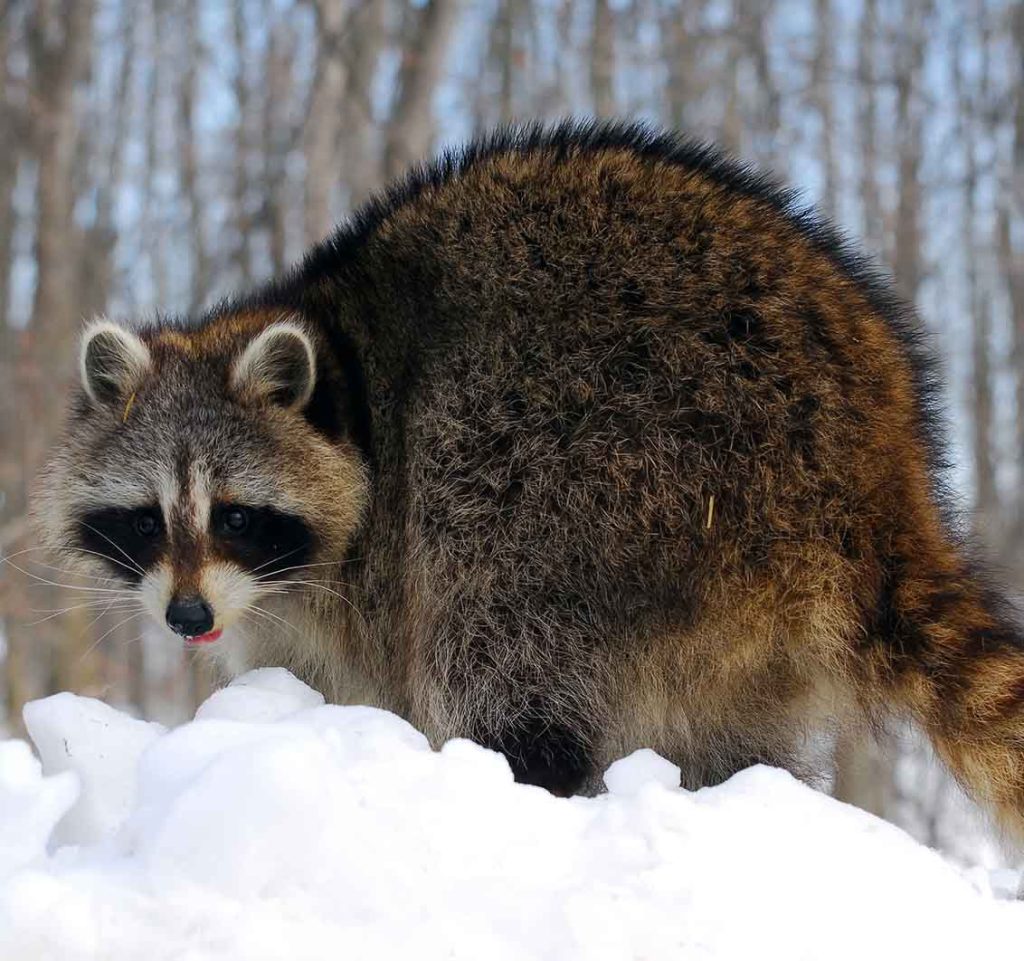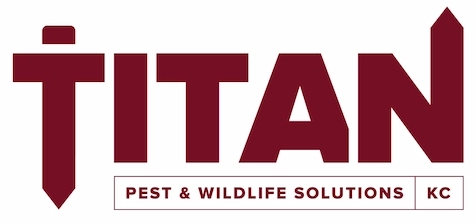If nuisance wildlife has taken up residence in your attic or another part of your property, contact Titan Pest & Wildlife. We will safely and humanely remove wildlife from your home.
Most of us look forward to the beautiful fall and winter months. Crisp weather, turning leaves which progresses into the pretty winter snow. It’s also a time when we prep for the cold weather by getting our coats, boots, shovels, and bags of salt ready.
However, we’re not the only ones preparing for cold weather. While some animals hibernate in the winter, others are just as active as usual. As temperatures cool, wildlife like raccoons and squirrels look for places to spend the winter and prepare for the spring when they’ll give birth to their young. Unfortunately, for some of us, our homes are a perfect place.

Common Winter Pests
Which animals can cause problems for you during the winter? What can you do to prevent them from seeking shelter in your home? And if you have signs of a nuisance wildlife infestation, what should you do?
Titan Pest & Wildlife answers these questions and provides pest control solutions for every pest problem.
- Raccoons
- During the winter, raccoons can exhibit different behaviors because they are not true hibernators. They do stay active year-round. They are intelligent critters and have good memories. Unfortunately, this means they are more likely to keep coming around your home as long as there’s a food supply. If they find your attic or garage a safe and cozy place to live, they’ll move in and bring many problems. They are destructive by nature and can destroy almost anything. They will tear up insulation, chew on wires, rip apart air ducts, and chew through roofing materials. In addition to all the destruction, they urinate and poop everywhere, which is a biohazard.
- Squirrels
- Their food source depends on the weather. Squirrels will prepare for the colder months by burying their food in preparation for when food is scarce. They prefer to live in the wild in trees, but they invade homes and other structures to stay warm when it’s cold. Like raccoons, squirrels are destructive creatures. They chew electrical wires and telephone lines outside. When they enter a house, they chew on wires, drywall, insulation, and other materials. Even though they are small, they can make a lot of noise. Their droppings and urine are problematic as well.
- Rats and Mice
- Rats and mice are much more than a nuisance and can cause extensive property damage and spread disease. You will likely learn of their presence when you see rodent droppings near a shredded paper or food source. Unfortunately, they like to live near humans and can do so often without being detected. You may find them in your basement, garage, or attic. Rodents are also known to cause serious illnesses.
How to Prevent Pests
Most homes are not built to keep pests out. Animals like mice, raccoons, and squirrels are looking for shelter. When it gets cold, they’re looking for a warm, dry place. Your home provides that, so they’ll move right in if they can find a way inside.
Many homeowners take a reactive approach to pest control. They wait for there to be a problem instead of preventing one. Why wait until you have a rodent infestation in your home? Because once they get inside, getting them out can be highly challenging.
To permanently remove nuisance wildlife from your home, you must prevent their access by sealing all entry points. It is also essential to eliminate all attractions, such as water and food. When you hire our pest control experts, we get to the root of your pest problem, seal all entry points, and take preventative pest control measures to avoid future infestations.

I am in Belleville, ILL. Do you service that area? Have a raccoon in attic. It comes & goes. It has torn in the roof front and backside to get in & out. If you don’t service this area can you recommend anyone that does.